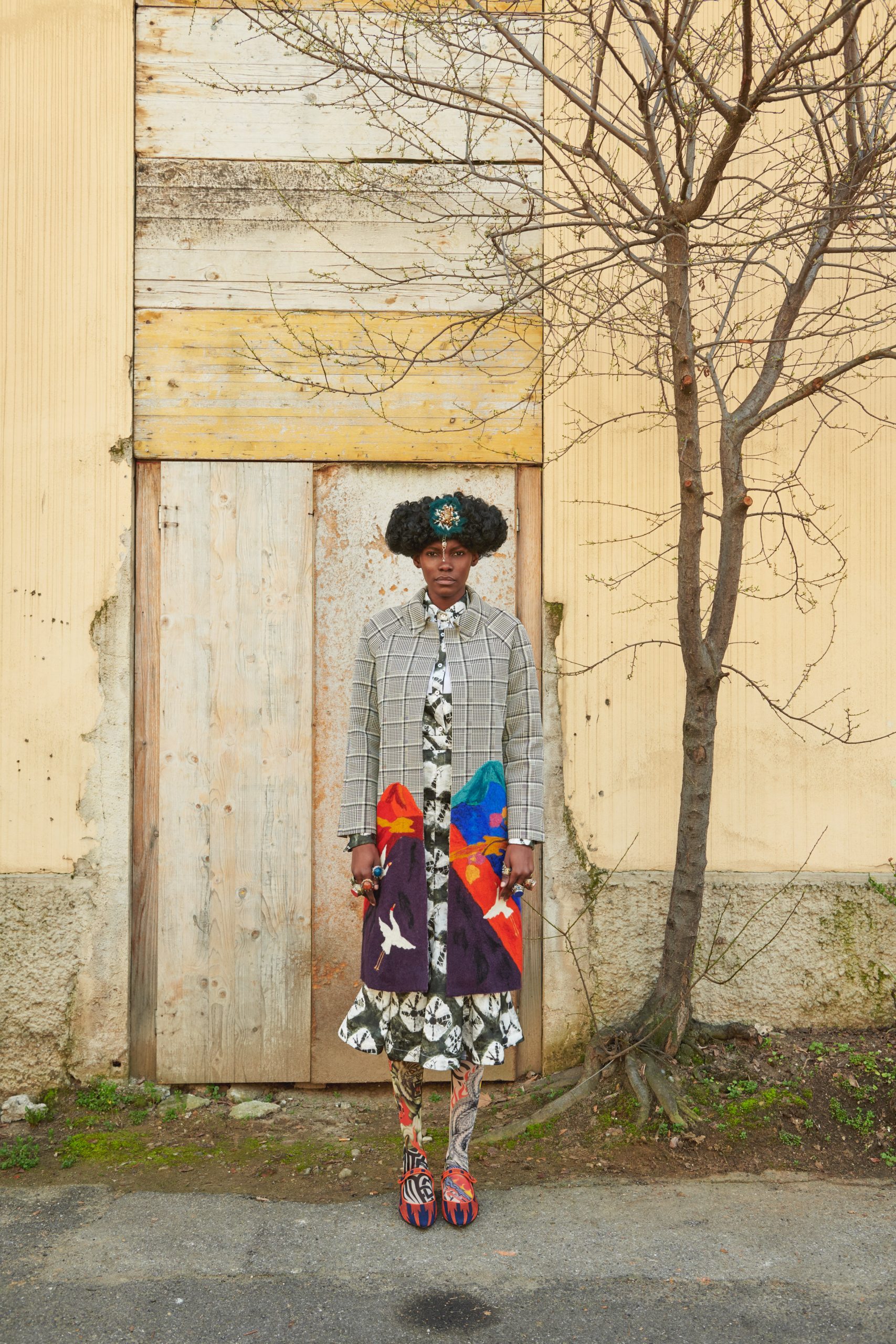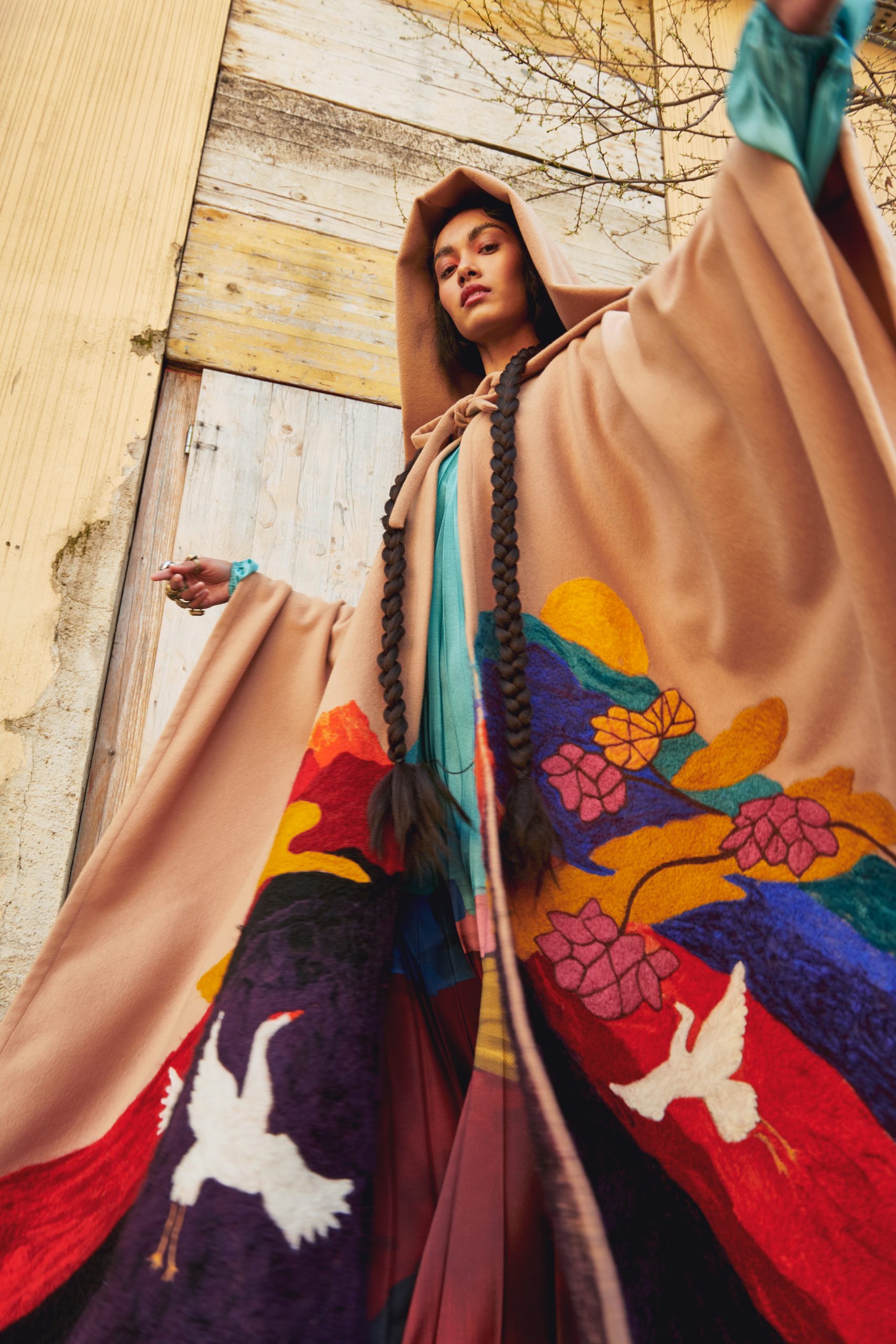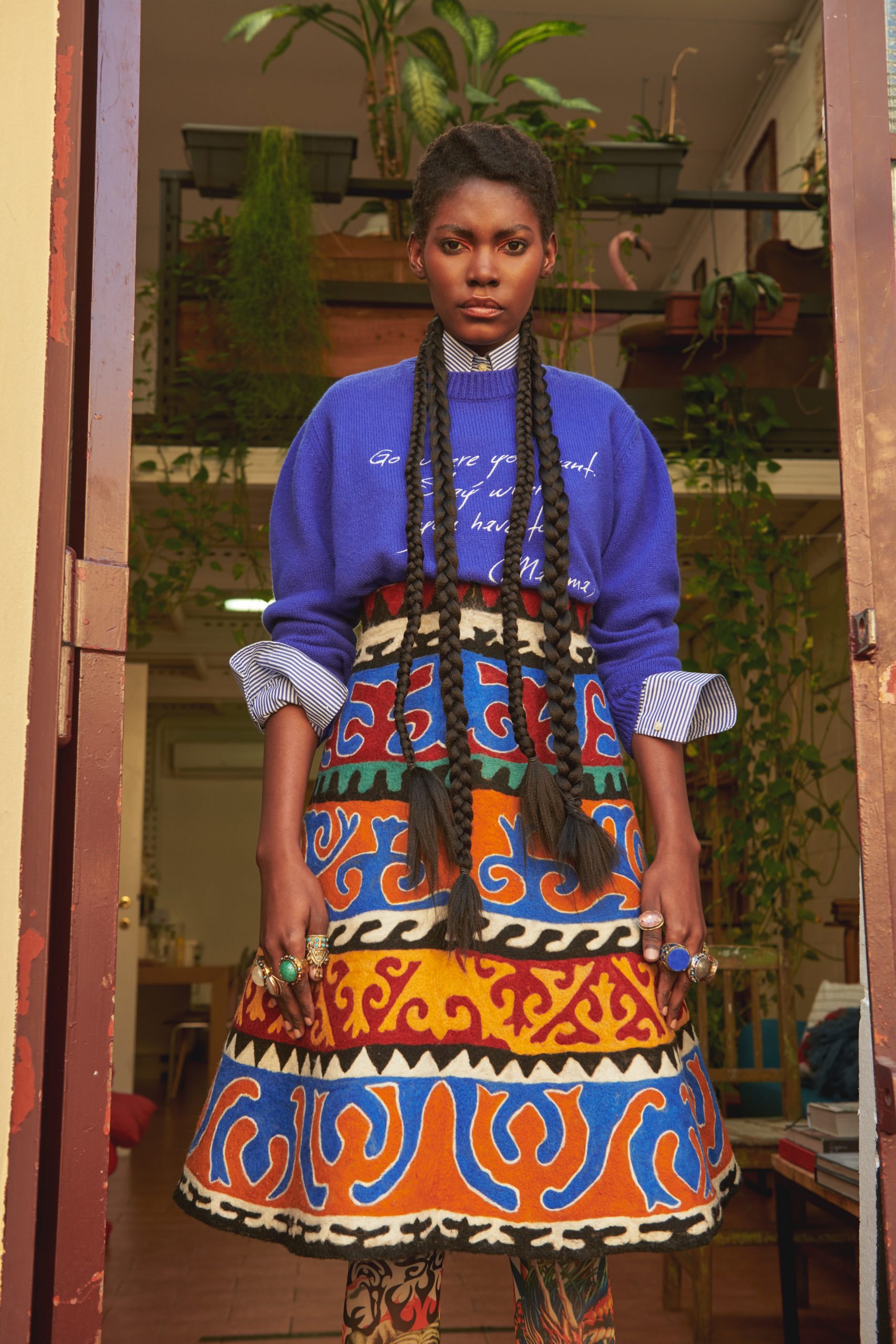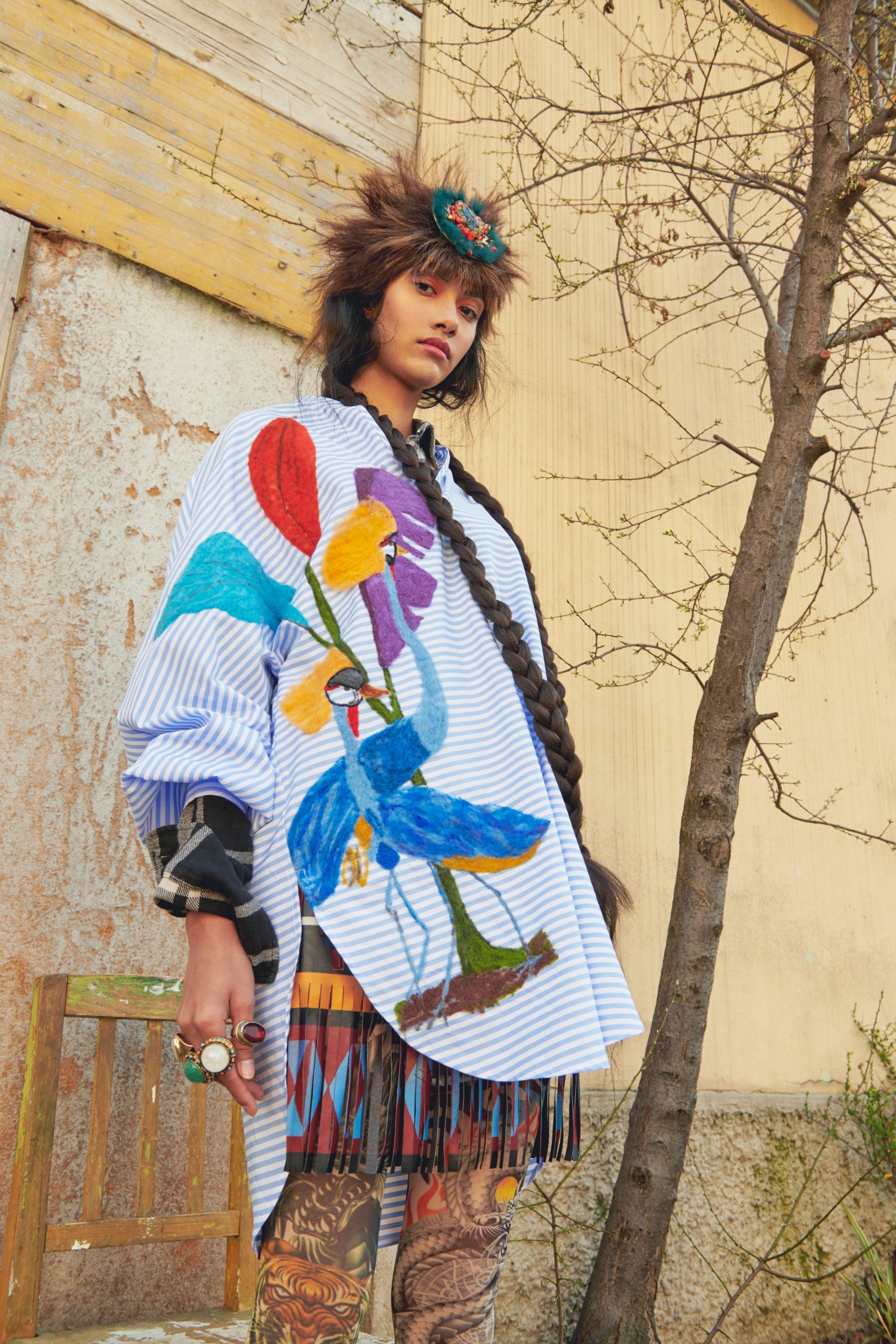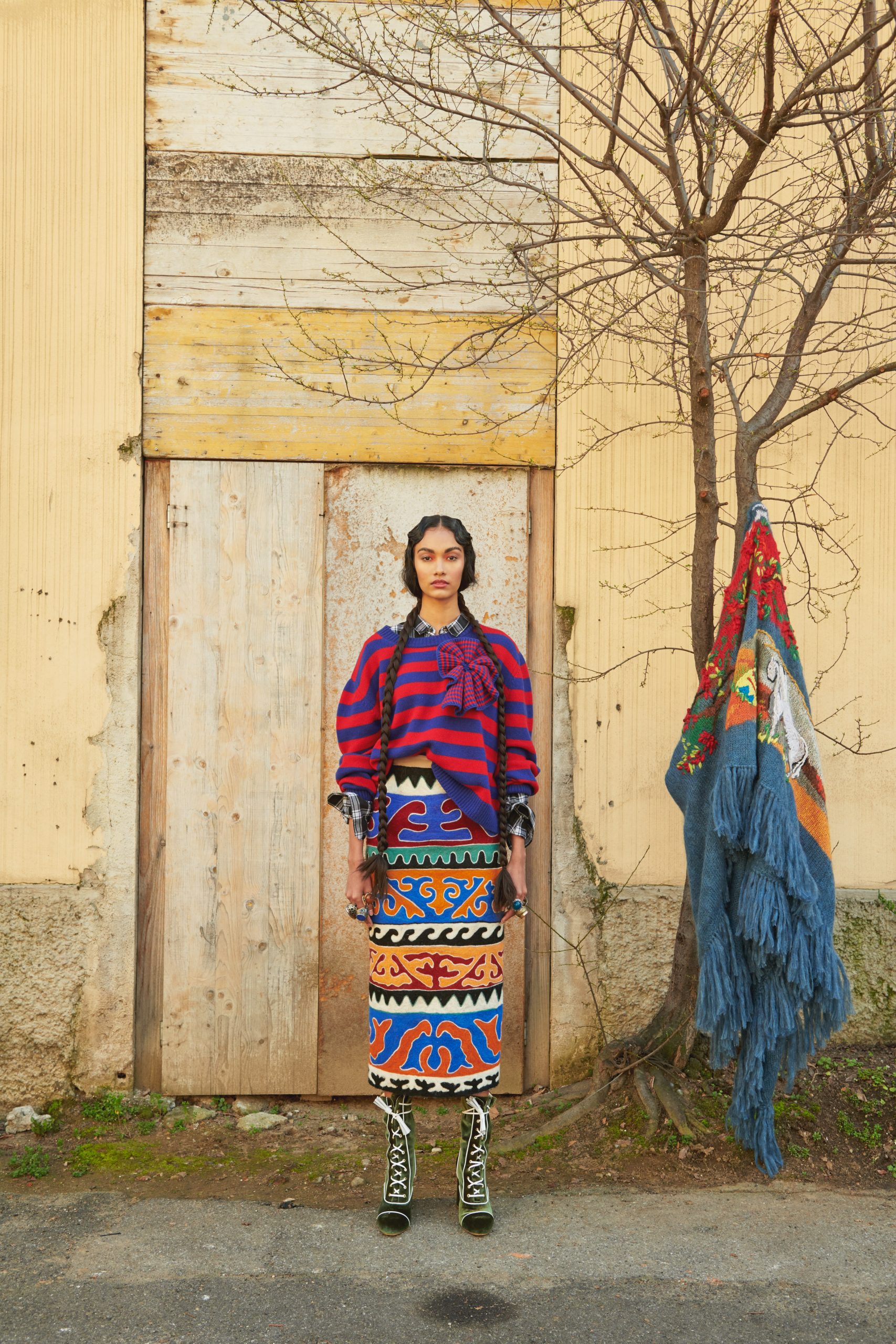Mission 10: Kyrgyzstan
Kyrgyzstan- Central Asia
Kyrgyzstan; high up there, where women move mountains.
Come discover what kind of wonders can be created by women who have never used their disadvantages as excuses, but instead as incentives. This mission was made possible, during the pandemic, thanks to the perseverance of “Super Ada”, The Mountain Partnership, and FAO’s Women Committee.

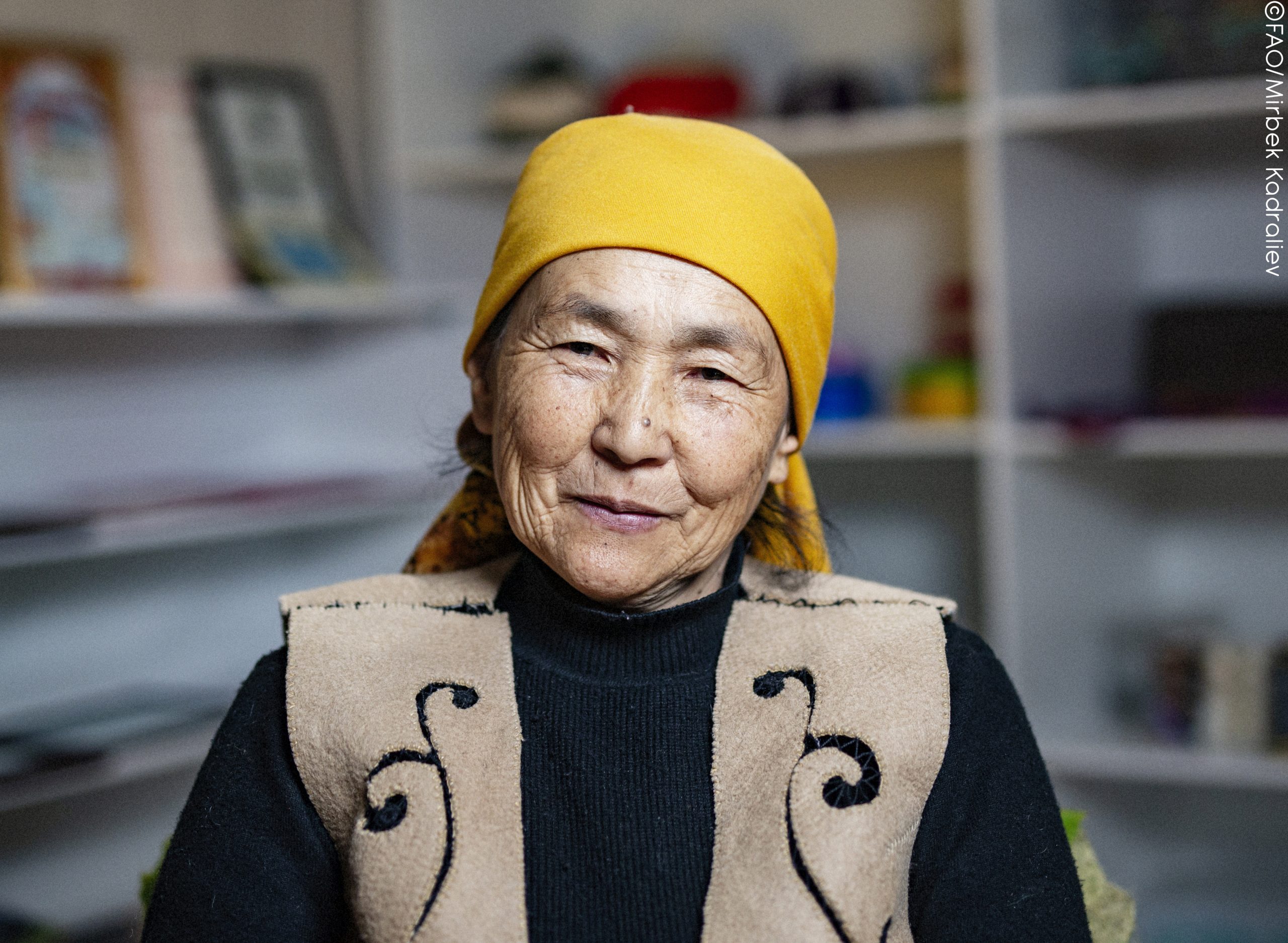
Meet Queen Sozul Do you see her crown? It was crafted by experience and set with the very rare stones of wisdom. Do you see her degree in Circular Economics? Every fold of her hands is a testament to the over 60 years that they have been teaching the girls of her region(Issyk-Kul/ Kyrgyzstan) how to work with locally sourced organic felt, with the only addition of a spindle, needlework, and natural soap.
Ada is more trustworthy than any sustainability guru you will find perched on any glamourous outlet. Every woman I met in the heights of sustainable practices is so skillfully trained that each one could hold a PhD in circular economy.”
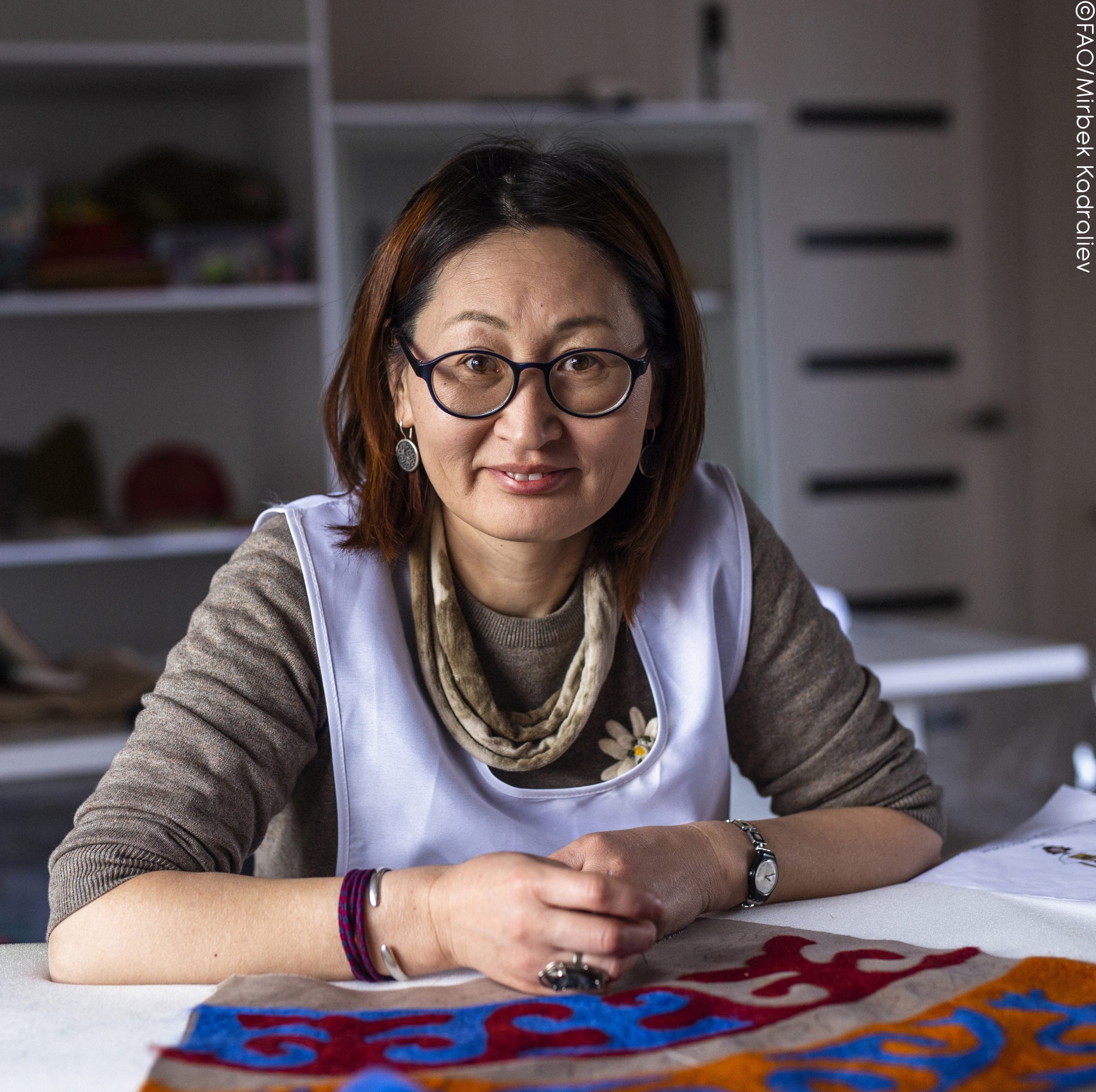
Stella’s tenth mission reveals the first LDN collaboration, supported by the Food and Agriculture Organization of the United Nations (FAO) through its Women’s Committee and the Mountain Partnership Products initiative, a global branding scheme promoting products from small-scale producers in mountain areas.
The initiative builds resilience of mountain people, many of whom live with threats of climate change and are disadvantaged and marginalized.
Stella Jean, partnered with the Mountain Partnership Products initiative after being introduced by the FAO Women’s Committee to the work of the Kyrgyz women from Barskoon, a settlement at 1750 meters elevation in the northeast of the country.
“When I saw the women's silk and felt work, I immediately knew that they are the backbone of eco-sustainable fashion.
They are custodians of a circular economy which is equitable and has a low environmental impact,” Jean said.
The women create carpets, wall hangings and silk-and-felt scarves using traditional feltwork handed down through generations. In 2017, with support from the Mountain Partnership Products initiative, they formed an artisan group called Topchu to produce and market products collectively. Thanks to the sales of their scarves around the world, the women have been able to boost their incomes, support their children’s education and expand their vegetable gardens.
Inspired by the women’s products, Stella worked online amid a COVID-19 lockdown with a local designer based in Bishkek on a sustainable fashion collection featuring traditional Kyrgyz embroidery in feltwork. The women of Topchu then used the designs to create the items, before shipping them back to Italy.A video showing the collaboration has been broadcasted at Milan Fashion Week .
“All the garments are embroidered with designs in felt, an organic fibre integral to Kyrgyz culture and way of life. By preserving and promoting this centuries-old example of sustainability, we help safeguard cultural heritage and morph what was once a supply chain into a value chain,” says Jean.
The women of Topchu will retain ownership of the designs and will be able to reproduce the fashion items and sell them directly, benefiting from the increased international exposure.
"Senior FAO Forestry Officer Yuka Makino, who is the Coordinator of the Mountain Partnership Secretariat, said: “This collaboration is a powerful example of how cultural heritage can be a driver of sustainable development in mountains. It also shows how partnerships with the private sector can bring innovative solutions.”
